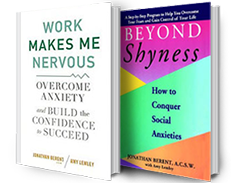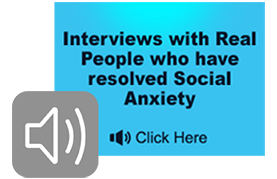Charles (not real name) age 42; father of two, software programmer, was in the basement of his home working when his wife came downstairs to engage him in a conversation regarding her anger toward his mother for not sending their children birthday cards. Charles did not respond. His wife stormed upstairs furious again that her husband was non-verbal.
In his therapy session Charles described to me his internal dynamics regarding that scenario. “He was trying to talk but his thoughts were swirling around in his head and he could not get any out by the time his wife stormed upstairs.
”During his fourth session of treatment, via telephone, he asked a great question; “why did I wait so long to get help?” The answer, which I facilitated his answering was, “his marriage crisis caused him to seek help”. In other words, he never would have looked for help without the external environmental influence. Such is the nature of the Selective Mutism. Charles would have continued to struggle with substantial unhealthy emotionality and dysfunctional behavior if not coerced into treatment via the overt and sustained distress in his marriage, which was worsening over time!
It should also be mentioned that Charles was on medicine before starting treatment with me. It was the right “family” of pharmaceuticals; however not the most productive specific medicine or dosage. This is a common scenario.
Connie (not real name) age 45, human resources consultant, never said a word for one and a half years at her weekly staff meeting consisting of about a dozen individuals.
What may be seen as public-group speaking anxiety (which is present) is more specifically characterized by the persons’ thinking that “they have nothing to say” or have difficulty “formulating thoughts”. This dynamic is the essence of selective mutism. It is very common. Listen to Mike, a selectively mute adult who resolved the problem. There are numerous interviews with real people and families who have resolved social anxiety at our library.
I offer you the following thoughts to consider; the result of my clinical work since 1978:
While many SM individuals are intellectually intelligent, their social and emotional intelligence is inhibited. This “inhibition” occurs in many different degrees. Please be very clear: there is a huge difference between intellectual and social-emotional intelligence. SM also has a tremendously negative effect on self-esteem.
Most SM individuals never receive treatment due to their challenge with “initiative”; therefore, the earlier that caregivers can facilitate healing, the more of an opportunity there is to prevent the anxiety from becoming more integrated into the personality. Please see avoidance-dependence syndrome. SM positions an individual for defensive and passive behaviors rather than a proactive approach toward life.
Parents of SM children should understand that they have a lot of power to facilitate resolution of the problem when they learn the parenting methodology for anxiety management as early as is possible. Furthermore, it is imperative that parents do not interpret this statement as meaning you are not good parents.
The longer that “enabling”, or “accommodating” the mutism is present without a “corrective parenting” methodology,the more potential there is for the SM individual to become narcissistic (negatively self-absorbed) and possibly delusional in the form of learning that the world will adapt to him/her versus the other way around!
Most SM adults, with whom I have worked, have an underlying dysthymia, which is an ongoing state of not being happy enough. Think of it, “How can a person be really happy when there is a consistent, ingrained worry regarding fear of talking?




